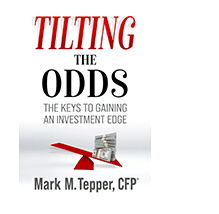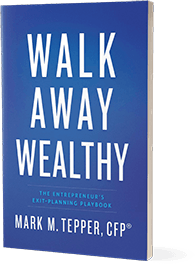Mark and Derek will continue their discussion on how President Biden plans to tax “the rich” and the not-so-rich. All these taxes keep dipping into the middle class. As the president proposes a six trillion-dollar budget he plans to pay for much of this by raising taxes. Who will be affected? How will these tax increases affect you? What do you need to pay attention to as these tax increases are passed?
Outline of This Episode
- [1:00] Recap the first two plans
- [1:20] Number Three: Raise taxes on the step-up inherited property
- [7:00] Number Four: Tax Carried Interest Taxed as Ordinary Income
- [9:55] Number Five: Like-Kind Exchanges
- [12:35] Number Six: Extend the business loss Limitation Rule
- [14:24] Number Seven: Increasing Enforcement Activities
Last episode we talked about the first two of seven ways Biden’s going to tax the “rich” and the “not-so-rich.” First, he is going to raise the top ordinary income tax rate from 37 to 39.6. Second, he wants to raise the capital gains tax rate from 20% to 43.4%. Listen to hear our discussion on number three through seven.
Number 3: Eliminate Stepped-Up Basis on Inherited Property
Under current law, if you inherit stock, real estate, or some other capital asset, your basis in the property is increased (“stepped up”) to its fair market value on the date that the person who previously owned it died. This increase in basis also means you can immediately sell the inherited property and avoid paying capital gains tax, because there’s technically no gain to tax. Why? Because gain is generally equal to the amount you receive from the sale minus your basis in the property. the president’s plan would nullify the effects of stepped-up basis for gains of $1 million or more ($2 million or more for a married couple).
Number 4: Tax Carried Interest Taxed as Ordinary Income
In certain cases, an investment fund manager can treat earned income as long-term capital gain. Known as the “carried interest” loophole, this lets the fund manager take advantage of the long-term capital gains tax rates, which are usually lower than the ordinary income tax rates he or she would otherwise have to pay on the income.
Number 5: Like-Kind Exchanges
If you sell real property used for business or held as an investment and then turn around and buy other business or investment property that is the same type, you’re generally not required to recognize gain or loss for tax purposes under the “like-kind” exchange rules. For example, say someone bought a house for $250,000, now it’s worth $2.5 million. That person could sell that home and then buy a new house elsewhere and not have to pay any capital gains. It looks like under this rule, any gains, larger than $500,000 would now be taxed.
Number 6: Extend the Business loss Limitation Rule
Individuals operating a trade or business can’t deduct losses exceeding $250,000 or ($500,000 for joint). If you’re a joint filer on Schedule C, you can carry them forward to later tax years. That is set to expire in 2027. President Biden’s plan calls for the business loss limitation rule to be made permanent. Is there any way around it?
Number 7: Increasing Enforcement Activities
Biden wants to increase tax enforcement activities aimed at high-income Americans – and give the IRS an extra $80 billion over a 10-year period to do it. While this really isn’t a tax increase, it certainly could result in wealthier Americans pay more in taxes.
Connect with Derek Gabrielsen
- Twitter: @DerekGabrielsen
- Follow Derek on LinkedIn
- Send Derek a message here
- Check out Derek’s YouTube channel!
Connect With Mark Tepper
- Twitter: @MarkTepperSWP
- Follow Mark on LinkedIn
- Send Mark a message here
- The SWP Connect YouTube Channel
Send your questions and comments to us at info@SWPConnect.com
Subscribe to The Capitalist Investor
 Enter your information below, and we will email you our new eBook, Tilting the Odds
Enter your information below, and we will email you our new eBook, Tilting the Odds




